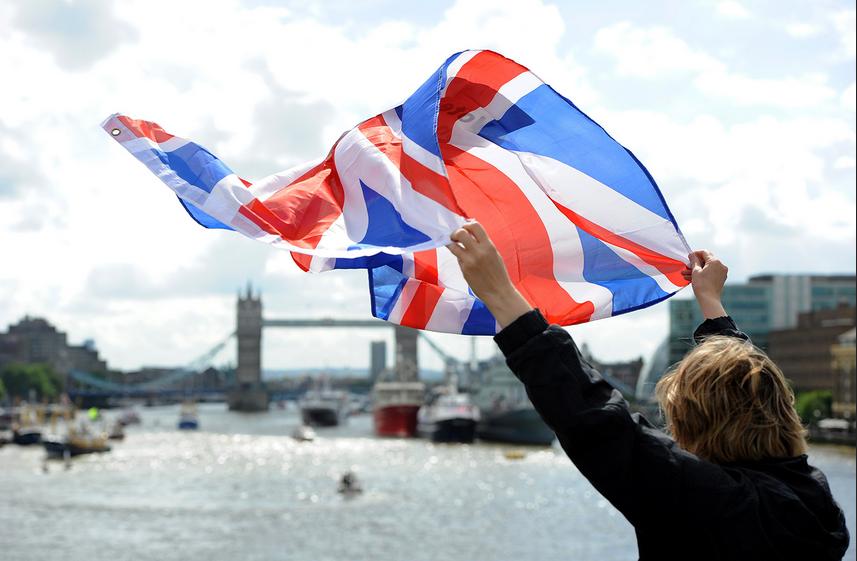Foreign Minister Boris Johnson resigns to preserve British hope of independence
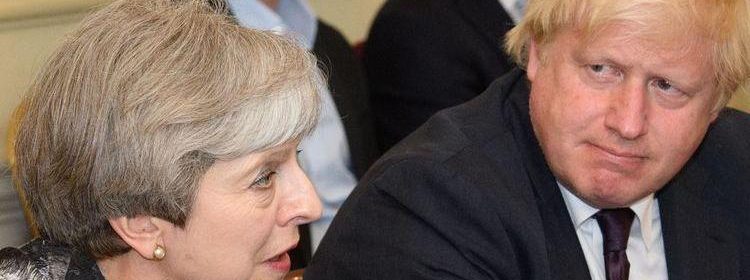
Boris Johnson has resigned as Britain’s foreign minister, saying he can’t support a Brexit strategy that has been suffocated by “needless self-doubt” when it should be about “opportunity and hope”.
His decision to walk followed that of Brexit minister David Davis, leading to open speculation about whether Prime Minister Theresa May could face a leadership challenge.
Mr Johnson wrote a lengthy letter explaining why he felt he had to go. It’s published in full below.
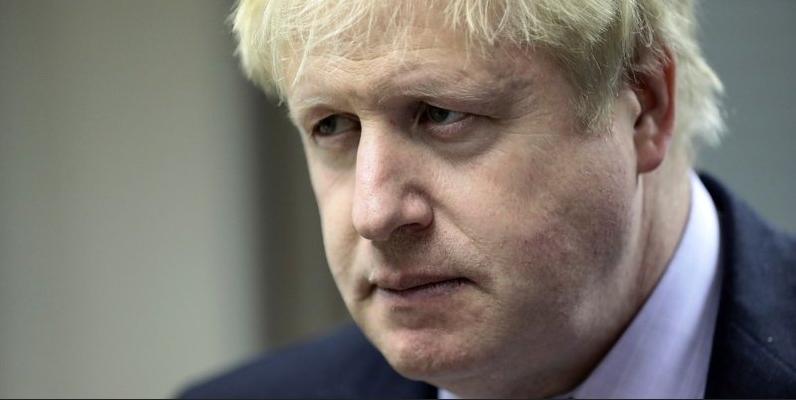
9 July 2018
The Rt Hon Theresa May
Prime Minister
Dear Theresa
“It is more than two years since the British people voted to leave the European Union on an unambiguous and categorical promise that if they did so they would be taking back control of their democracy.
They were told that they would be able to manage their own immigration policy, repatriate the sums of UK cash currently spent by the EU, and, above all, that they would be able to pass laws independently and in the interests of the people of this country.
Brexit should be about opportunity and hope. It should be a chance to do things differently, to be more nimble and dynamic, and to maximise the particular advantages of the UK as an open, outward-looking global economy.
That dream is dying, suffocated by needless self-doubt.
We have postponed crucial decisions — including the preparations for no deal, as I argued in my letter to you of last November — with the result that we appear to be heading for a semi-Brexit, with large parts of the economy still locked in the EU system, but with no UK control over that system.
It now seems that the opening bid of our negotiations involves accepting that we are not actually going to be able to make our own laws. Indeed we seem to have gone backwards since the last Chequers meeting in February, when I described my frustrations, as Mayor of London, in trying to protect cyclists from juggernauts. We had wanted to lower the cabin windows to improve visibility; and even though such designs were already on the market, and even though there had been a horrific spate of deaths, mainly female cyclists, we were told that we had to wait for the EU to legislate on the matter.
So, at the previous Chequers session we thrashed out an elaborate procedure for divergence from EU rules. But even now that seems to have been taken off the table and there is in fact no easy UK right of initiative. Yet if Brexit is to mean anything, it must surely give ministers and Parliament the chance to do things differently to protect the public. If a country cannot pass a law to save the lives of female cyclists — when that proposal is supported at every level of UK government — then I don’t see how that country can truly be called independent.
Conversely, the British Government has spent decades arguing against this or that EU directive, on the grounds that it was too burdensome or ill-thought out. We are now in the ludicrous position of asserting that we must accept huge amounts of precisely such EU law, without changing it an iota, because it is essential for our economic health — and when we no longer have any ability to influence these laws as they are made.
In that respect we are truly headed for the status of colony — and many will struggle to see the economic or political advantages of that particular arrangement.
It is also clear that by surrendering control over our rulebook for goods and agrifoods (and much else besides) we will make it much more difficult to do free trade deals. And then there is the further impediment of having to argue for an impractical and undeliverable customs arrangement unlike any other in existence.
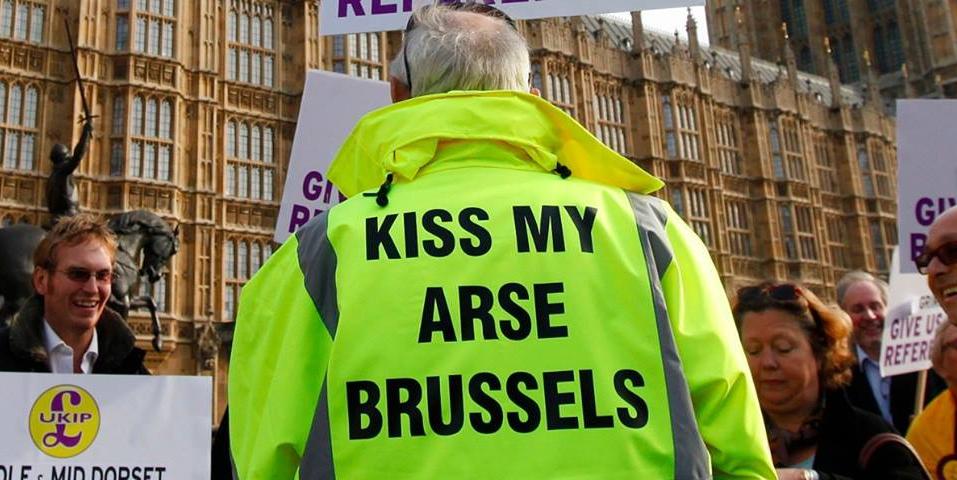
What is even more disturbing is that this is our opening bid. This is already how we see the end state for the UK — before the other side has made its counter-offer. It is as though we are sending our vanguard into battle with the white flags fluttering above them. Indeed, I was concerned, looking at Friday’s document, that there might be further concessions on immigration, or that we might end up effectively paying for access to the single market.
On Friday I acknowledged that my side of the argument were too few to prevail, and congratulated you on at least reaching a Cabinet decision on the way forward. As I said then, the Government now has a song to sing. The trouble is that I have practised the words over the weekend and find that they stick in the throat. We must have collective responsibility. Since I cannot in all conscience champion these proposals, I have sadly concluded that I must go.
I am proud to have served as Foreign Secretary in your Government. As I step down, I would like first to thank the patient officers of the Metropolitan Police who have looked after me and my family, at times in demanding circumstances. I am proud too of the extraordinary men and women of our diplomatic service. Over the last few months they have shown how many friends this country has around the world, as 28 governments expelled Russian spies in an unprecedented protest at the attempted assassination of the Skripals. They have organised a highly successful Commonwealth summit and secured record international support for this Government’s campaign for 12 years of quality education for every girl, and much more besides. As I leave office, the FCO [Foreign and Commonwealth Office] now has the largest and by far the most effective diplomatic network of any country in Europe — a continent which we will never leave.”
The Rt Hon Boris Johnson MP

Boris Johnson’s resignation speech to Parliament 18 July 2018
“Thank you Mr Speaker for granting me the opportunity to pay tribute to the men and women of the Foreign and Commonwealth Office, who have done an outstanding job over the last two years, and I am very proud that we have rallied the world against Russia’s barbaric use of chemical weapons with an unprecedented 28 countries joining together to expel 153 spies in protest at what happened in Salisbury. We have rejuvenated the Commonwealth with a superb summit that saw Zimbabwe back on the path to membership and Angola now wanting to join. And as I leave we are leading global campaigns against illegal wildlife trade and in favour of 12 years of quality education for every girl. And we have the flag, the union flag, going up in nine new missions, in the Pacific, in the Caribbean and Africa, and more to come. So that we have overtaken France to boast the biggest diplomatic network of any European country. None of this would have been possible without the support of my right honourable friend, the Prime Minister.
Everyone who has worked with her will recognise her courage and her resilience. And it was my privilege to collaborate with her in promoting global Britain. A vision for this country that she set out with great clarity at Lancaster House on January 17th last year. A country eager, as she said, not just to do a bold, ambitious and comprehensive free trade agreement with the EU – out of the customs union, out of the single market – but also to do new free trade deals around the world. I thought it was the right vision then. I think so today.
But in the 18 months that have followed, it is as though a fog of self-doubt has descended.
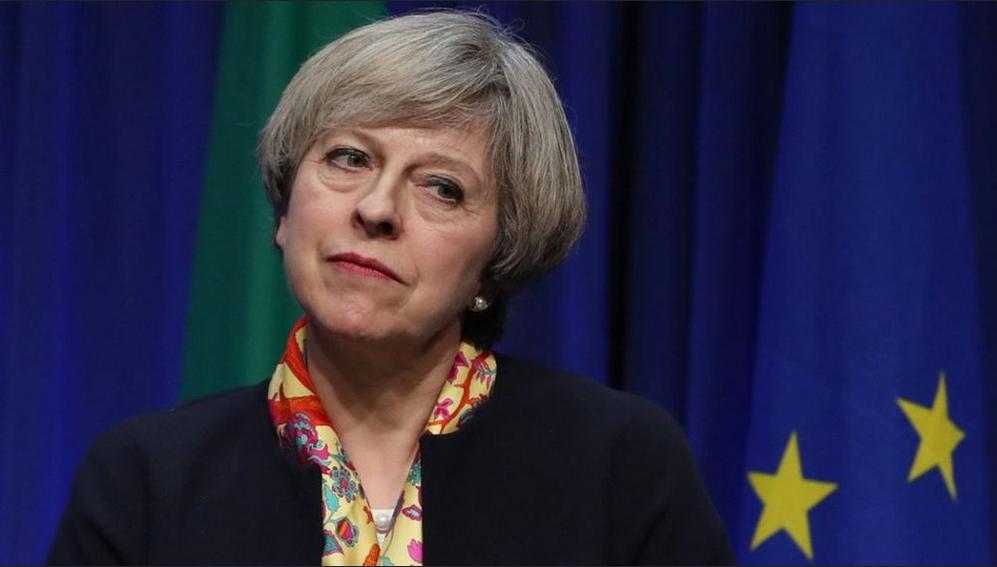
And even though our friends and partners liked the Lancaster House vision – it was what they were expecting from an ambitious partner, what they understood; even though the commentators liked it, and the markets liked it – as my Right Honourable friend the Chancellor observed, the pound soared – we never actually turned that vision into a negotiating position in Brussels and we never made it into a negotiating offer.
Instead we dithered. And we burned through our negotiating capital. We agreed to hand over a £40 billion exit fee with no discussion of our future economic relationship. We accepted the jurisdiction of the European Court over key aspects of the withdrawal agreement. And worst of all we allowed the question of the Northern Irish border, which had hitherto been assumed on all sides to be readily soluble, to become so political charged as to dominate the debate. No one on either side of this house or anywhere wants a hard border. You couldn’t construct one if you tried. But the certainly can be different rules North and South of the border, to reflect the fact that there are two different jurisdictions. In fact, there already are. There can be checks away from the border, and technical solutions as the Prime Minister rightly described at Mansion House. But when I, and other colleagues – and I single out my honourable friend the Right Honourable member from Haltemprice and Howden, proposed further technical solutions to make customs and regulatory checks remotely. Those proposals were never even properly examined, as if such solutions had become intellectually undesirable in the context of the argument. And somehow, after the December joint report, whose backstop arrangement we were all told was entirely provisional, never to be invoked, it became taboo even to discuss technical fixes. So Mr Speaker, after 18 months of stealthy retreat we have come from the bright certainties of Lancaster house to the Chequers agreement, and you put them side by side. Lancaster house said laws will once again be made in Westminster. Chequers says there will be an ongoing harmonisation with a common EU rulebook. Lancaster House says it would be wrong to comply with EU rules and regulations without having a vote on what those rules and regulations are. Chequers now makes us rule takers. Lancaster House said we don’t want anything that leaves us half in, half out. And we do not seek to hold onto bits of membership as we leave.
Chequers says we will remain in lock step on goods and agri-foods, and much more besides, with disputes ultimately adjudicated by the ECJ. Far from making laws in Westminster, there are large sectors in which ministers will no power to initiate, innovate or even deviate. After decades in which UK ministers have gone to Brussels, and expostulated against costly EU regulation, we are now claiming we must accept every jot and tittle for our economic health, with no say of our own, and now way of protecting our businesses and entrepreneurs, from rules now and in the future that may not be in their interest. My right honourable friend, the Chancellor was asked to identify the biggest single opportunity from Brexit. After some thought he said ‘regulatory innovation’. Well there may be some regulatory innovation post-Brexit, but it won’t be, alas, coming from the UK (and certainly not in those areas).
We are volunteering for economic vassalage, not just in goods and agri-foods but we will be forced to match EU arrangements on the environment and social affairs and much else besides. Of course we all want high standards but it is hard to see how the Conservative government of the 1980s could have done its vital supply side reforms with those freedoms taken away. And the result of accepting the EU’s rulebooks and of our proposals for a fantastical Heath Robinson customs arrangement is that we have much less scope to do free trade deals as the Chequers paper actually acknowledges and which we should all frankly acknowledge. Because otherwise, if we pretend otherwise, we continue to make the fatal mistake of underestimating the intelligence of the public, saying one thing to the EU about what we are doing, and then saying another thing to the electorate. And given that in important ways, this is Bino or Brino – or Brexit in name only – I am, of course, unable to accept it or support it, as I said in the Cabinet session at Chequers, and I am happy now to speak out against it and be able to do so. Mr Speaker, it is not too late to save Brexit, we have time in these negotiations.
We have changed tack once, and we can change again. The problem is not that we failed to make the case for a free trade agreement of the kind spelled out at Lancaster House – we haven’t even tried. We must try now. Because we will not get another chance to get it right. And it is absolute nonsense to imagine, as I fear some of my colleagues do, that we can somehow afford to make a botched treaty now, and then break and reset the bone later on. Because we have seen, even in these talks, how the supposedly provisional becomes eternal.
And we have the time – and I believe the Prime Minister has the support of Parliament. Remember the enthusiasm for Lancaster House and for Mansion House…
PM Theresa May’s Mansion House Brexit Speech of 2nd May 2018
The Lancaster House Speech:
…And it was clear last night that there is no majority in this House for a return to the Customs Union.
With good will and common sense we can address the concerns about the Northern Irish border and all other borders. We have fully two and a half years to make the technical preparations along with preparations for a world trade outcome, those preparations which we should now accelerate. We should not and need not be stampeded by anyone. But let us again aim explicitly for that glorious vision of Lancaster House: a strong, independent, self-governing Britain that is genuinely open to the world. Not the miserable permanent limbo of Chequers. Not the democratic disaster of ongoing harmonisation with no way out and no say for the UK.
We need to take one decision now before all others. And that is to believe in this country and in what it can do. Because I can tell you, Mr Speaker, that the UK’s admirers – and there are millions if not billions across the world – are fully expecting us to do what we said and to take back control. And to be able to set new standards for technologies in which we excel. To behave not as rule takers but as great independent actors on the world stage, and to do free trade deals – proper free trade deals – for the benefit and the prosperity of the British people.
That was the vision of Brexit that we fought for. That was the vision that the Prime Minister rightly described last year, that is the prize that is still attainable. There is time, and if the Prime Minister can fix that vision once again before us, then I believe she can deliver a great Brexit for Britain, with a positive, self-confident approach that will unite this party, unite this house and unite this country as well.”
